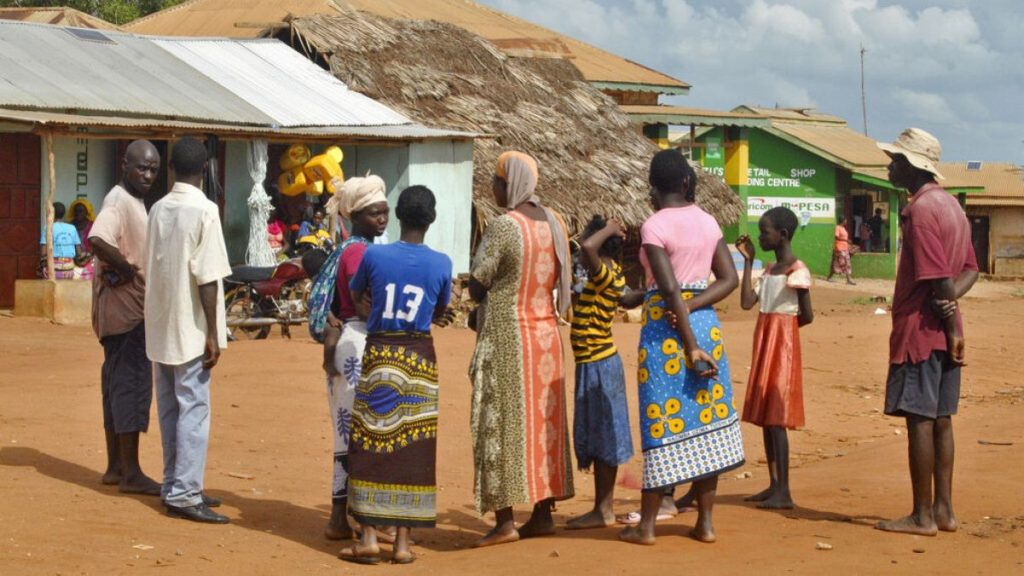The unexpected descent of a large metallic ring from the skies onto a rural Kenyan village has sparked investigations and raised concerns about the growing problem of space debris. The object, described as a “massive metallic ring” measuring approximately 2.5 meters wide and weighing 500 kilograms, plummeted to Earth on a Monday afternoon, landing in Mukuku village, southeast of Nairobi. Villagers described the ring as “red and hot” upon impact, thankfully causing no injuries or significant damage. The Kenya Space Agency (KSA) promptly responded to the incident, securing the site and initiating an investigation. Preliminary assessments suggest the object is a separation ring from a launch rocket, a component designed to detach during the rocket’s ascent.
The incident highlights the inherent risks associated with space exploration and the increasing prevalence of space debris. While space debris re-entering the Earth’s atmosphere is not uncommon, it typically burns up completely upon re-entry or falls into uninhabited areas, such as oceans. The Mukuku village incident stands out as a rare occurrence where a substantial piece of space debris survived re-entry and landed in a populated area. The KSA has emphasized the isolated nature of the event and pledged a thorough investigation, adhering to established international space law frameworks. The agency aims to identify the owner of the debris and keep the public informed of their findings and subsequent actions.
The incident has naturally prompted concern among local residents. One eyewitness, Joseph Mutua, recounted hearing a loud bang while tending to his cattle, unsure whether it was an explosion or some other phenomenon. He expressed relief that the object landed in an open area, acknowledging the potential for catastrophic consequences had it struck a home. The KSA has assured the public that experts will meticulously analyze the debris to determine its origin and learn from the incident. This analysis will likely involve examining the ring’s material composition, trajectory data, and comparing it with known rocket launch profiles to pinpoint the responsible party.
The incident underscores the broader issue of space debris management, a growing challenge for spacefaring nations and agencies worldwide. The escalating number of satellites and spent rocket stages orbiting the Earth has created a congested environment, increasing the risk of collisions and the generation of more debris. This debris poses a threat to operational satellites, the International Space Station, and potentially even ground-based infrastructure. The Mukuku village incident serves as a stark reminder of the tangible consequences of this accumulating debris and the need for enhanced tracking, mitigation efforts, and international cooperation.
The United Nations has also recognized the urgent need to address the space debris issue. A UN panel on space traffic coordination recently highlighted the importance of tracking and managing objects in low Earth orbit, where the majority of space debris resides. The European Space Agency estimates that over 14,000 tonnes of material currently exist in this region, posing a significant and growing hazard. This debris ranges from defunct satellites and spent rocket stages to fragments from collisions and even tools lost by astronauts during spacewalks. The incident in Kenya emphasizes the importance of international collaboration to develop and implement effective strategies for debris mitigation and removal.
The KSA’s commitment to investigating the incident and adhering to international space law sets a positive precedent for addressing similar events in the future. Identifying the source of the debris and holding the responsible party accountable can contribute to greater responsibility and adherence to best practices in space operations. The incident also underscores the need for enhanced public awareness about the risks of space debris and the importance of international cooperation in tackling this complex challenge. As space activities continue to expand, so too does the imperative for sustainable practices and responsible management of the space environment to ensure its safety and accessibility for future generations. The falling ring in Kenya serves as a wake-up call, reminding us of the potential consequences of inaction and the shared responsibility we have in protecting our planet and the space beyond.














